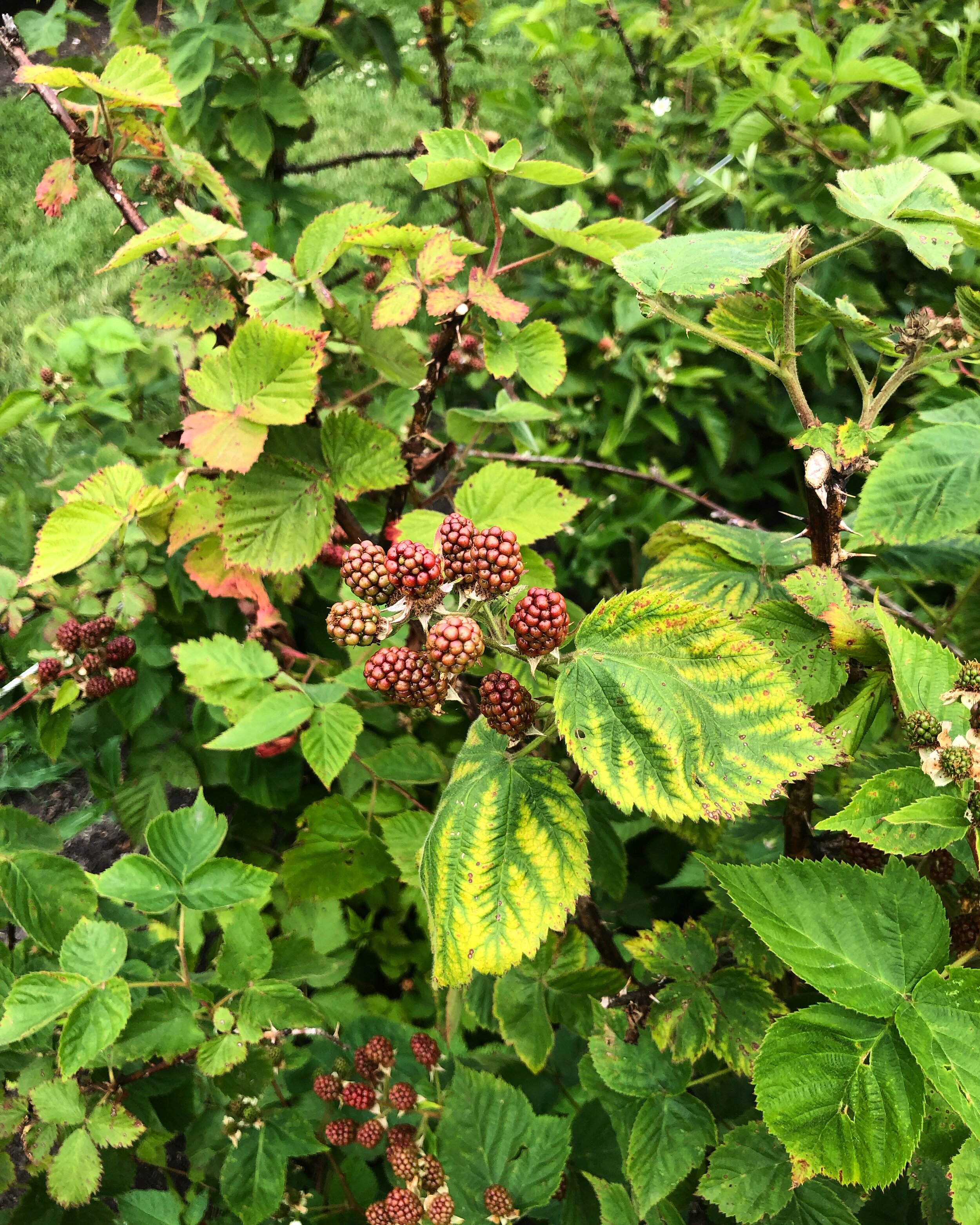Beginners' Guide to Wintering a Garden
A chill is in the air, the berries and tomatoes have come and gone, and your garden is starting to look a little dead. Now what? You might be tempted to leave your plants in the ground until spring, but you would most def regret that decision when you're ready to plant next year. In this post, I’ll tell you exactly how to close a garden for winter to set yourself up for success next spring.
Keep harvesting fall crops
If your garden is still kicking, there's no need to end the party now. Continue harvesting your fall crops until the first deep freeze or until they stop yielding and start to die off. Some crops, like kale, can last until late November so don't cut things off too soon. For plants that are sensitive to cold (like tender herbs, summer squash or tomatoes) continue on with the steps below while leaving your fall crops to yield a little longer.
Bring small plants inside
Before the first frost, bring small plants that yield year round (like herbs) indoors. To do this, carefully dig up the plants, making sure to get as much of their roots as possible, and transfer them to pots. Add in extra soil as needed and place them in an area of the house that gets similar sunlight to what they experienced outside. Be sure to water them thoroughly just after transplanting to make their transition a little smoother.
Pull up annual summer crops
Annuals are plants that only survive for one growing season and don't grow back the next year (think: tomatoes, eggplants, cucumbers, squash...). Now is the time to get your dead annuals out of the garden. If you don't remove them now, you'll either be stuck in a freezing rain trying to yank up gnarly roots or you'll have to deal with them in the spring.
You might be tempted to leave dead annuals for spring, but this could encourage animals to shack up in your garden. If animals start living in your garden now, it will be difficult (and possibly heart-breaking) to get rid of them in the spring. When pulling up your crops, make sure to pull up as much of their roots as possible and compost their remains.
Cut back perennial summer crops
Unlike annuals, perennial plants will regrow year after year from the same root system. Don't dig these up unless you're reeeeally sure you don't want them in your garden next year. Instead, simply trim back all dead branches from your perennial plants and leave the rest of the plant in the ground for next year.
Pick up fallen fruits and veggies
Like all cleanup efforts, it might be tempting to leave leftover fruits and vegetables in your garden to decompose back into your garden's soil. Unfortunately, leaving these fallen friends will make your life a lot more difficult in the spring when they start to sprout. If you don't want dozens of baby tomato plants trying to grow in places where you didn't plant them, compost those fallen tomatoes now, no matter how gross or squishy they may be.
Pull weeds
Just because the season is coming to a close doesn't mean your weed pulling days are over. Get in there and rip up unwanted weeds so they'll be less likely to return next season. When pulling weeds, use a small trowel or hand shovel to help you pull up their entire roots.
Consider planting cover crops
If you live in a warmer climate, the gardening season doesn't have to end just yet. Planting winter crops that take different nutrients from the soil than your summer and fall crops can help even out your soil's nutrients and maintain a healthy soil structure. This will set you up for a thriving garden next year. Hobby Farms has a great list of potential cover crops for your winter garden.
Clean and store your tools
Don't abandon your tools in the garden during winter! If your tools are exposed to the elements all winter long, they could break down more quickly or become totally destroyed. No need to waste your tools — clean them up and tuck them into storage for their seasonal nap.

